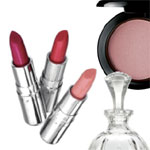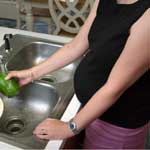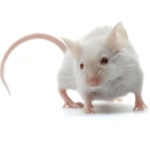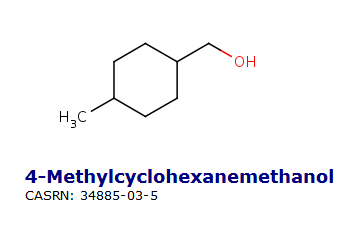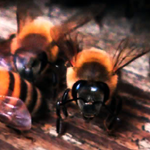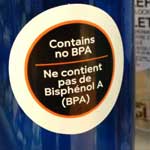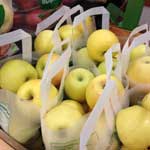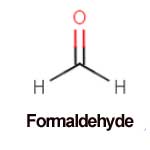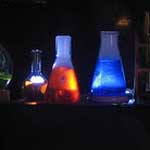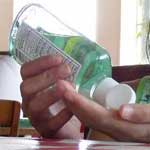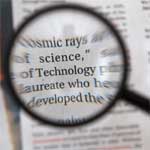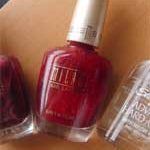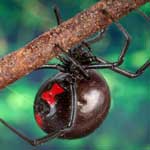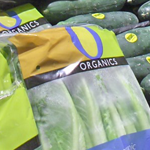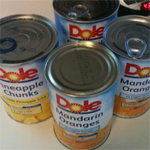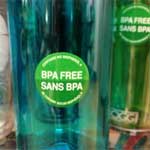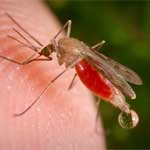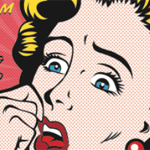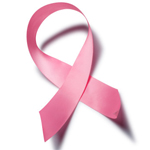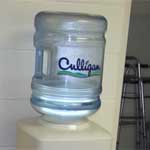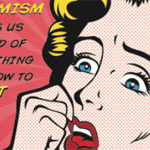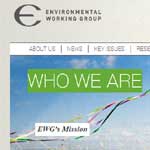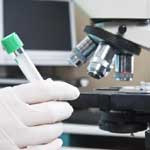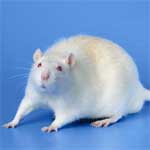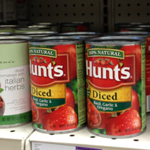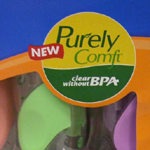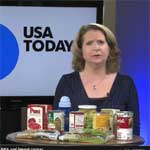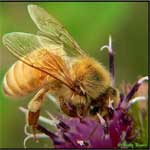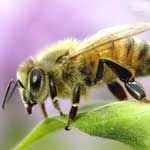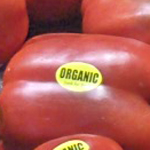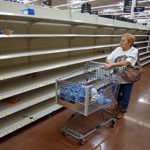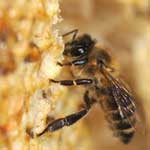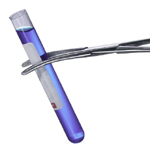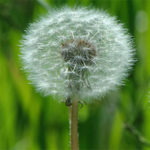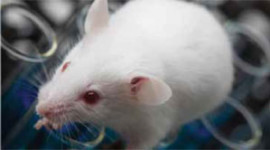"Do Consumers Think About Parabens in Cosmetics?" by Perry Romanowski. If you spend a lot of time on the Internet surfing RSS feeds and social media, you could develop the notion that parabens are dangerous chemicals in cosmetics and that you should avoid products that contain them. Of course, actual science tells a different story and a review of all the scientific evidence by the independent scientists of the EU’s Scientific Committee on Consumer Safety (SCCS) indicates that parabens in … [Read more...]
Communication Failures and the West Virginia Chemical Spill
"Uncertainty and the West Virginia Chemical Spill," By Angela Logomasini on February 14, 2014. In the aftermath of the January 9 chemical spill in West Virginia, environmental activists claim: “More than two weeks after the spill, the answer to most questions about the spill and the chemicals in it is either that ‘we don’t know’ or that the information is incomplete.” Green groups make such claims to capitalize on the fact that everything in life has some uncertainty. But that does not mean … [Read more...]
Food Babe is Wrong Again
"Useful Idiot Alert: The Food Babe," By Julie Gunlock. Have you heard about the Food Babe? She’s got quite a following. On Twitter, she has 46K followers. On Facebook, she has a whopping 319K followers. Her website is well designed (The Food Babe has a degree in computer science so that makes sense) and she’s clearly had her media training. She’s been on Good Morning America, the Today Show and on her fellow alarmist’s program, The Dr. “apple juice will kill you” Oz show, plus a whole bunch of … [Read more...]
TSCA Reform Not the Answer to the Chemical Spill
"TSCA Reform Won’t Reduce Chemical Spill Risks," By by Angela Logomasini. The January 9 chemical spill in West Virginia, which temporarily contaminated the Charleston drinking water supply, has rekindled a debate related to federal chemical regulation. Clearly, this case — and another spill that occurred this week in West Virginia — demonstrates the failure to properly implement the many emergency planning and prevention laws and programs already on the books. And this is a problem that state … [Read more...]
We Have Enough Information to Manage Chemical Spill Risk
"West Virginia Chemical Spill: We Have Enough Information to Manage the Risk," By Angela Logomasini. In a prior post, I addressed the background related to the recent chemical spill that contaminated drinking water in West Virginia, and I highlighted why more regulation would not do much good. But we continue to hear that we need more regulation because we don’t have enough information about this chemical and thousands of others. Such claims divert our attention from the real issue: failure to … [Read more...]
Subway Restaurant Bows to Alarmist Nanny State
"The Latest Example of a Company Bowing to Consumer Pressure: Subway," By American Council on Science and Health. Here is yet another example of one of the nation’s largest brands responding to pressure from American consumers and activist groups. Subway has chosen to remove the chemical azodiacarbonamide from its bread. According to a statement made by the company, “We are already in the process of removing Azodiacarbonamide as part of our bread improvement efforts despite the fact that it is … [Read more...]
Chemical Spill Does Not Signal Need for More Regulation
"More Regulation Is Not the Answer to West Virginia Chemical Spill," by Angela Logomasini. The recent chemical spill in West Virginia has green groups clamoring for more regulation, including expansion of Environmental Protection Agency power under the Toxic Substances Control Act. Early on, however, Democratic Senator Barbara Boxer of California rightly told the press, “We can fix this now” using existing laws rather than passing new ones. Boxer’s strong opposition to the current TSCA reform … [Read more...]
Honeybees and Pesticide Ban Reversal?
"Bee Deaths Reversal: As Evidence Points Away From Neonics As Driver, Pressure Builds To Rethink Ban," by Jon Entine. If the Environmental Protection Agency moves to restrict neonicotinoid pesticides because of fears that they are causing bee deaths, it will happen in spite of the mounting evidence rather than because of it. Last December, the European Commission banned the use of neonicotinoids, often called neonics, for two years. The moratorium, support for which was channeled by the … [Read more...]
Beepocalypse or Not?
"To Bee or Not to Bee? What is Behind the Bee Colony Collapse? Or is There One?" By American Council on Science and Health. The discussion about the reasons behind the so-called “beepocalypse” has been entirely focused on its cause. Some suspects have been cell towers, pesticides, and infectious diseases—Tobacco Ringspot Virus being the latest theory. But if you follow some of the references in Jon Entine’s recent Forbes op-ed, entitled “Bee Deaths Reversal: As Evidence Points Away From Neonics … [Read more...]
Phthalate Plasticizers Now Safe
"Several Types of Phthalate Plasticizers, Used for Decades but Once Shunned, Now Safe Again!" by American Council on Science and Health. Posted on February 5, 2014 by adminPhthalates — pronounced THAL-ates — are a family of chemicals, many of which are have been added to PVC plastic to make the firm product softer and flexible. Over the course of the past decade-plus, no chemical group in common use has taken such vitriolic attacks on its safety as have phthalates.In recent years, a distinction … [Read more...]
BPA Science
"EU BPA Evaluation must avoid 'Hysteria' and Focus on Scientific Evidence," By Rüdiger Baunemann. Regulatory authorities worldwide have found no health concern of BPA-based applications, therefore there is no scientifically justified reason for further restricting its use, argues Rüdiger Baunemann. Plastics have become indispensable to modern life, and a number of important materials are based on Bisphenol A (BPA). Without plastics we would not be able to enjoy high-tech devices like … [Read more...]
Expert Says: Pesticide Residue “Not Really a Concern”
"Pesticides Get Gad Rap, Expert Says," By Carol Ryan Dumas. Pesticides are an essential tool in production agriculture yet often get a bad rap, particularly when it comes to pesticide residues in food, an expert says. In reality, pesticide use is heavily regulated and allowable residue levels are so low that the issue of safety is insignificant. ...The dangers of pesticides are exaggerated by the media and special-interest groups, an expert says, but the truth is they are an essential tool in … [Read more...]
Chemical Spill & Formaldehyde Nonsense
"The West Virginia Formaldehyde Claim Is Nonsense," by Derek Lowe. This morning I heard reports of formaldehyde being found in Charleston, West Virginia water samples as a result of the recent chemical spill there. My first thought, as a chemist, was "You know, that doesn't make any sense". A closer look confirmed that view, and led me to even more dubious things about this news story. Read on - there's some chemistry for a few paragraphs, and then near the end we get to the eyebrow-raising … [Read more...]
Huffington Post’s Chemical Fearmongering
"At 'HuffPo' Fearmongering Is an Olympic Sport," By Jeff Stier. What is to blame for spiraling medical spending? Exposure to chemicals in food containers, of course. In a dazzling display of confusion between association and causation, Huffington Post environmental and public health columnist Lynne Peeples writes that: "Health care spending in the U.S. has surged more than eightfold since the 1960s. Skyrocketing in that same time: Rates of chronic disease, use of synthetic chemicals, and … [Read more...]
Rats! “Relevant” Chemical Exposures Are Not Relevant
"Close Enough For NIEHS Work," By Steve Hentges. The subject of endocrine disruption is not particularly new, with extensive scientific and regulatory attention to endocrine disrupting chemicals (EDCs) over the last 20 years or so. ... Quite a few natural and synthetic chemicals exhibit endocrine activity but, in spite of 20 years of research, the field of endocrine disruption continues to be ill-defined and highly controversial. Two of the current controversies revolve around the related … [Read more...]
Cosmetics and Cancer Claims
“Safe” Chemicals Used In Makeup and Skincare Doubles Cancer Risk by Katherine Corkill. Well I had hoped to not be broaching this subject yet again. However there was an article that I took exception to this month that was written by a gal in the UK for the Epoch Times. My particular concern is through her attempted proclamations of fact there was not a single link to support her objective. I have read countless arguments, misconstrued facts, skewed data only to see yet again another article … [Read more...]
BPA Exposure: Low and Harmless
"BPA Exposure Is 'Too Low to Cause Harm,' According To Regulators; But You'd Never Know That From The Media Coverage," by Henry Miller. Suppose a new authoritative analysis revised the estimate of your lifetime chances of being struck by a meteorite — from, say, one in a hundred billion to one in ten billion. Should that tenfold increase in the probability make you any more worried? No– because both values are somewhere between negligible and infinitesimal. A similar and more pertinent question … [Read more...]
Conventional Produce Healthy for Kids
"Organic Shmorganic: Conventional Fruits and Vegetables are Perfectly Healthy for Kids," By Melinda Wenner Moyer. When my son was a baby, organic was a synonym for edible. If the apples I found at the grocery store weren’t certified, I wasn’t buying them. I knew that conventional produce could harbor traces of pesticides, and I’d read that pesticides could affect brain development. Sure, the details of this association were hazy—I didn’t know how many pesticides my son might ingest from … [Read more...]
EU’s Nonsensical Precautionary Regulations
"The Junk Science Threat to Free Trade," By Julie Girling. French red lines on agriculture and America's desire to have financial regulation be treated outside the current trade negotiations dominate the headlines about the proposed trans-Atlantic free-trade zone. But the biggest threat to the Trans-Atlantic Trade and Investment Partnership may well be the EU's expanding embrace of "precautionary" regulation—often in contradiction to established norms of science and risk management. ... … [Read more...]
Europe’s Precautionary Junk Science
"Junk Science Rules in the EU, says Parliamentarian," by American Council on Science and Health. A Wall Street Journal Op-ed by a member of the EU Parliament decries the direction being taken by science there: it’s back to the dark ages as fear trumps evidence. In a recent opinion piece in the Wall Street Journal, MEP Julie Girling, a Brit on the Parliament’s Environment (and Agriculture) committees, issues a warning about the direction EU chemical food regulation is headed: smack-dab into a … [Read more...]
Foolish Attack on Antibacterial Products
"The Green Campaign against Triclosan is Dangerous and Regressive," By Angela Logomasini. Environmental activists have sounded the alarm suggesting that consumers face serious health risks from the antibacterial chemical triclosan, which manufacturers have safely used in soap and other personal care products for decades. Unfortunately, green hype has led federal regulators to force companies to try to do the impossible—prove that their products pose no risk or remove them from the market. But … [Read more...]
Dangers Associated with Potential Ban on Anti-Bacterial Soap and Gels
"Immune Compromised Patients Will Suffer from Anti-Bacterial Soap Ban," By Angela Logomasini. Many people with compromised immune systems use antibacterial soaps and gels, particularly when they’re on the go, to reduce health risks. But environmentalists have launched a campaign to ban triclosan, the active ingredient in these soaps. That action would do nothing for public health while thwarting consumer access to helpful products. These anti-chemical groups have so demonized triclosan by … [Read more...]
Weak Science Garners Headlines
"Scare Journalism And Miracle Cures: American Media Prefer Weak Observational Studies," By Hank Campbell. A new analysis has affirmed what many in the science audience already knew; mainstream media prefer weak observational studies. It's why you're reading this article here instead of the New York Times. And that is not just in regards to social psychology correlations made using surveys of college students or sociology mysticism, it happens in medical coverage too. The examination found that … [Read more...]
Science Under Attack
"The Latest Epidemic To Infect The Scientific Community? Bad Science," by Patrick Michaels. Last month, 2013 Nobel-prize recipient Randy Schekman made quite a few waves in the science world, when he announced, the day before receiving his award, that he would no longer send papers to Science, Nature, and Cell. These are probably the three most prestigious journals in the world. His accusation is that they are “damaging science” by selectively publishing trendy “headline science” (my words) at … [Read more...]
Nail Polish Alarmism at the NYT
"Don't Worry, ladies. You're not Harming Yourself by Applying your Favorite Nail Varnish," by Julie Gunlock. But that's precicely what an environmental group is telling millions of women in order to push their regulatory agenda. And last week, the New York Times kindly spread the alarmism. In last week's "Just Ask" column, (which perhaps should be renamed "Just Ask...but We Can't Promise a Well Thought Out or Researched Answer), Deborah Blum asks "Is Nail Polish Harmful?" ... Read More. … [Read more...]
NYT Promotes Foolish Fears About Nail Polish
"Be Afraid of Your Nail Polish, says the NYTimes’ 'Ask Well' Column. Really?" by American Council on Science and Health. This is what happens when you let your “health” advice column be taken over by an “environmental writer.” This week’s Science section of the New York Times included an advisory about cosmetics entitled, “Is nail polish harmful?” So what sort of answer would you expect? What if you substituted “artichokes” for “nail polish”? Certainly too much H2O can be harmful: more people … [Read more...]
Why Pesticides Should be a Favorite Thing
"Why Anti-Pesticide Campaigns do Unintended Harm," by Angela Logomasini. Black spots on roses and flea bites on kittens; blight fallen petals and overwrought Britons. These are just a few unfavorable things associated with “green” attacks on pesticides. While pesticides have risks that must be managed, they also provide important benefits to farmers, gardeners and consumers. These benefits are being lost in a politically correct sea of regulations and blind support for everything “organic.” … [Read more...]
Organic Food Not Better for the Environment
"If You Care About The Environment, Here Are Two Reasons To Support Big Ag," by Hank Campbell. There's no greater feel-good fallacy than the belief that organic food is somehow superior to conventionally farmed food. In reality, organic food isn't more environmentally responsible, it is worse, it isn't better for your health, it is worse and, for the most part, it isn't even grown by small farmers, it is giant conglomerates who, like with gluten-free, fat-free or any other food fad, encourage … [Read more...]
Federal Regulators Inquire about Antibacterial Soap
"What’s in That Soap? Inquiring Federal Regulators Want to Know," by American Council on Science and Health. The FDA, after years of evading activist and scientific inquiries into the actual benefits and risks of certain chemicals in “antibacterial” soaps, has finally taken action, demanding data showing efficacy and safety of these ingredients (this has nothing to do with hand sanitizers, by the way). The issues involved here are, however, more complex than it seems at first glance. As for … [Read more...]
Evidence of BPA Safety
"Evidence Released Supporting BPA Safety," by Kari Embree. NAMPAThe North American Metal Packaging Alliance, Inc. (NAMPA) reminds consumers of the important scientific evidence released in 2013 that supports the safety of Bisphenol A (BPA) in food contact applications. Data from key studies, including large-scale regulatory studies by the National Institute of Environmental Health Sciences (NIEHS) in collaboration with the U.S. Food and Drug Administration (FDA) and the U.S. Environmental … [Read more...]
Scientists Say Chemical Policy Guided by Junk Science
"Politics, Environmentalism Beating Out Science In Regulating Risk Say Experts," by Trevor Butterworth. A survey of three professional societies, each focused on risk assessment, reveals that science is being pushed aside by politics and environmental advocacy when it comes to protecting the public from the risks of chemicals. When asked to weigh the most important factor that should go into managing risk, the scientists overwhelmingly said science (98 percent). But when asked to weigh the … [Read more...]
BPA Headaches and Bottled Water
"BPA Junk Science Headaches," by Angela Logomasini. Could your affection for bottled water be responsible for your bout with migraines? Apparently so, if you believe the latest headlines about the chemical bisphenol A (BPA). But its wise to be wary of such silly claims. First of all, it’s wrong to suggest that single serving bottled water commonly contains BPA, because that’s simply not true. BPA is not used for single-serving, flexible plastic water bottles, as pointed out on the … [Read more...]
New York Times, DDT, & Malaria
"Is the NYTimes Rreverting to the Bad Old Days of DDT Denial?" by American Council on Science and Health. Over the 51 years since Rachel Carson’s poetic attack on DDT in her “Silent Spring” novel, the chemical pesticide became the poster child for the nascent environmental movement’s inchoate wrath. The victims: millions of African and Asian children and pregnant women who succumbed to malaria in the absence of DDT. (Note: the discoverer of DDT’s potent insecticidal prowess, Dr. Paul Mueller, … [Read more...]
Ignore Alarmism: Common Sense Advice to Parents
"Advice for Parents: Common Sense, Moderation and Ignore those Alarmist Warnings," by American Council on Science and Health. Julie Gunlock, the director of the Independent Women’s Forum Culture of Alarmism Project, has written a new book, “From Cupcakes to Chemicals: How the Culture of Alarmism Makes Us Afraid of Everything and How to Fight Back,” based on the premise that “It’s critical that moms be able to discern between false alarmism and real risks.” She discusses her book in a recent … [Read more...]
Farmers Detail Farming Practices and Safe Use of Pesticides
"Farmer Videos Show Food Safety Commitment," by SafeFruitsand Veggies.com The AFF has recently reposted on our Facebook page the videos of farmers describing how they control pests and diseases on their organic and conventional fruit and vegetable farms. These videos clearly show the scientific and technical knowledge that goes into making each and every pest and disease control decision. The reposting of the videos is in response to increasing consumer questions and comments about how and why … [Read more...]
Phony Phthalates Scare
"What Started the Phony Phthalates Scare? Utterly Inept Science, by American Council on Science and Health." Phthalates, a group of ubiquitous chemicals that are perennial darlings of the anti-chemical movement, have been accused of being responsible for just about everything from birth defects to the assassination of Archduke Ferdinand. Well, now they may be going onto California’s chemical wastebasket called “Proposition 65”, ostensibly a list of chemicals that cause cancer or reproductive … [Read more...]
Fight Cancer by Attacking Known Causes
"Six Solid Ways To Reduce Your Cancer Risk -- And That Of Your Children," by Geoffrey Kabat. We hear so much these days about cancer threats from exposure to trace amounts of pesticides and industrial chemicals in our food, water, cosmetics, sleepwear, and in playgrounds. This constant drumbeat of what invariably turn out to be miniscule or non-existent threats confuses many people, and diverts attention from what are the major known, avoidable causes of cancer and what we can do to reduce our … [Read more...]
Cupcakes and Chemicals: NRO Interviews Julie Gunlock
"Cupcakes, Chemicals, and a Culture of Alarmism," Katheryn Jean Lopez interview with Julie Gunlock. ‘I’m a mother — a mother of three hungry, energetic boys — who is tired of those who try to make parenting, and plain old living, more complicated, stressful, and less fun than it should be,” Julie Gunlock declares in the introduction of her new book, From Cupcakes to Chemicals: How the Culture of Alarmism Makes Us Afraid of Everything and How to Fight Back. “It’s critical,” she adds, “that moms … [Read more...]
California Wrongly Lists Plasticizer, Phthalate DINP, on Prop. 65
"California’s Prop 65 Bandwagon Rolls Over Another Safe, Useful Chemical," by American Council on Science and Health. Yesterday, the California Environmental Protection Agency’s Office of Environmental Health Hazard Assessment (OEHHA), the mega-brains deciding on which chemicals need to be labeled under Proposition 65’s dictum, “known to the State of California” to be a carcinogen or reproductive toxicant, announced that the phthalate DINP (diisononylphthalate) would be included on the list. … [Read more...]
Junk Science Alert: Headaches & BPA Water Jugs
"A Debate that Causes Headaches: Rushed Conclusions from Recent Study on BPA," by BPA Coalition. A new study from the University of Kansas was published claiming that drinking water from plastic bottles and water coolers containing BPA could cause migraines. It has since been picked up by media such as the British Daily Mail which reported that the study imitated human exposure to BPA in a laboratory where rats were administered BPA once every three days. The results of the study allegedly … [Read more...]
EPA Appoints “Science” Official
"In the mood for some nice government-speak? EPA appoints new 'Scientific Integrity Official,'” by American Council on Science and Health. Well, we can all rest a little uneasier today: thanks to a new EPA appointee, there will be a sudden and profound uptick in the environmental agency’s integrity when evaluating research and formulating scientific policies. Not. In announcing the creation of a new Orwellian-sounding position called the “scientific integrity official,” EPA administrator Gina … [Read more...]
From Cupcakes to Chemicals
"Fearmongering: Be Afraid… Of Everything!" by Julie Gunlock. A few years ago, I was watching the news and was shocked to learn that my garden hose was incredibly dangerous. Say, what? The newscaster anchoring the program that night seemed really upset about this story. He leaned forward in his seat, stuttered… and…wait…did I see him tear up? Did his voice just crack? Oh my gosh, he’s going to cry! Read more at IWF's Inwell Blog. … [Read more...]
Toxin’s, Turkey-Day, and Chemophobia
"Thanksgiving Chemophobia - If Toxins Scare You, Stop Eating," By Hank Campbell. When I was younger, only Rachel Carson was ruining dinner and her evidence-by-anecdote heritage in Silent Spring still lingers with us today. To many in America, 'carcinogens' are a bad word, DDT will give you cancer 6 months after you spray it on crops and all chemicals are bad. And that is just among Grist readers. Once you broaden it out to the rest of progressives, you will find them paralyzed by "chemophobia" … [Read more...]
Chemicals “Lurking” in Your Turkey-Day Menu?
"Disregard Toxic Advice on Turkey Day," by Angela Logomasini. Toxic chemicals lurk in the “typical” Thanksgiving meal, warns a green activist website. Eat organic, avoid canned food, and you might be okay, according to their advice. Fortunately, there’s no need to buy this line. In fact, the trace levels of man-made chemicals found in these foods warrant no concern and are no different from trace chemicals that appear in food naturally. The American Council on Science and Health (ACSH) … [Read more...]
Anti-Flame Retardant “Toxic Hot Seat”
"HBO’s “Toxic Hot Seat” is Toxic All Right: It Seems to Have Addled Kristof’s Brain," By American Council on Science and Health. 1181213_88625943New York Times columnist Nicholas D. Kristof, in his latest opus entitled Danger Lurks in That Mickey Mouse Couch — wait, did he really say that? Anyway, Nick has gone off the rails again, intoxicated by the siren song of an HBO special on tonight (Monday, November 25th), similarly entitled Toxic Hot Seat. The producers of that documentary have the … [Read more...]
Black Widow Spiders Thrive with Reduced Pesticide Use
"Are There Spiders Lurking In Your Food?" by Lindsey Jahn. Occurrences of shoppers discovering spiders lurking in grocery-store grapes have been reported throughout the Midwest over the past month — and the issue isn’t limited to one retail chain. Budget supermarket chain Aldi pulled all grapes from its Milwaukee locations after a consumer found a black widow spider in a package of grapes from an Aldi store in Wauwatosa, Wis....The prevalence of black widows being found in grapes has increased … [Read more...]
Statistical Shenanigans: JAMA “Study” on Phthalates
"Results First, “Study” Later: JAMA Dredges up More Junk against Phthalates," by American Council on Science and Health. An article published in today’s JAMA Pediatrics purports to link premature birth to exposure to the group of chemicals known as phthalates. These are plastic softeners-plasticizers, and are also found in numerous household products and cosmetics and shampoos. In fact, this so-called study is a typical product of those researchers whose goals are — rather than the advancement … [Read more...]
Unscientific EU Pesticide Regulations
"Bad Science Could Kill Global Trade Talks," by John R. Block. Has irresponsibility gone intercontinental?...The European Commission has laid out a set of new rules that could effectively ban a quarter to a third of U.S. agricultural output and keep out U.S.-made products for controlling weeds, funguses and insects. The United States sets standards for pesticides essential to providing the world's food needs based on scientifically determined levels of safety, then applies a 100 to 1000 fold … [Read more...]
Dr. Oz Admits: Conventional Produce is Safe and Healthy
"Dr. Oz Agrees With Health Experts - Eat More Conventional and Organic Produce," by SafeFruitsandVeggies.com. Despite his segment last week about pesticide residues which was clearly designed to scare viewers and raise produce safety concerns, Dr. Oz’s own viewpoint regarding consumption of conventionally grown produce appears to agree with health experts everywhere who recommend consuming more of either conventionally or organically grown produce for improved health. Following the airing of … [Read more...]
Plastics, Pregnancy & Bad Journalism
"Can't Get Pregnant? Blame It On Plastics! Well, Not If Science Matters," Jon Entine. If you’re having trouble getting pregnant, plastics may be the culprit—at least that’s what a credulous reader might conclude based on recent news reports and a slew of website stories with headlines like: “New studies link BPA and phthalates to miscarriage and infertility.” But as is often the case when journalists report on complex science issues, the headlines do not align with the facts. A careful reading … [Read more...]
Cal EPA’s Junkscience on Breast Cancer Risk
"Over-Reaching California EPA Regulators Promoted A False Breast Cancer Link," by Geoffrey Kabat. In 2005 the California Environmental Protection Agency (Cal EPA) issued a voluminous report on the health effects of exposure to environmental tobacco smoke (ETS) which attracted attention for its rash claim that ETS was associated with increased risk of breast cancer. Thirteen years earlier the US EPA had published a report showing a weak link between ETS and developing lung cancer. But, of … [Read more...]
BPA Critics Wrong Again
"Bumbling BPA Critics Actually Manage to Prove Themselves Wrong. Not Easy," By American Council on Science and Health. We at ACSH are rarely surprised by anything we see published. Since it is our job to debunk bad science, we get a steady diet of it. But we got a special dessert dropped in our laps, and this one takes the cake. Although the study in question is from July, it is so jaw-droppingly awful that we decided to include it today. And when you read it, you may want to discontinue your … [Read more...]
Pesticide Residue Worries
"Pesticide Residue Calculator," Julie Gunlock. I was once told by another mother (visiting my house for a playdate) that I was putting my children at risk by letting them eat non-organic apples. She warned me about "those awful pesticides" and got even more nervous when I pulled out the non-organic milk (I write about this incident in more detail in my new book, available here). It took all my strength (and good manners) not to kick her out of my house right then and there but I decided that … [Read more...]
Misguided Safety Concerns About Pesticides on Food
"Study Shows Consumers Continue to Have Misguided Safety Concerns About Produce," by SafeFruitsandVeggies.com. A new study from Colorado State University (CSU) shows that consumers continue to have concerns about the safety of conventionally grown produce and the government regulatory processes in place to protect public health. Among other findings, the study showed that: “A distrust in regulatory oversight is a key trigger in the valuation for local and organic.” And, consumers generally … [Read more...]
Chemical Alarmists’ Vocabulary
"An Alarmist Vocabulary: Chemical Is 'Linked To,' 'Study Suggests,' 'Consistent With,' by Angela Logomasini Headlines continue to appear to claiming that a recent study has shown that the chemical bisphenol A increases the risk of miscarriage, which I addressed in a Forbes article last week. There are many problems with this research, such as the fact that it is not available in a published, peer-reviewed format. Check out my piece here for more details. This issue raises a bigger concern … [Read more...]
Halloween Fears and Environmentalist Tricks
"Ignore the Halloween Alarmist," By Julie Gunlock We've entered scary season. On Halloween, people actually enjoy getting spooked. Yet increasingly, feeling frightened isn't a choice or a once-a-year occurrence. Each day, Americans, particularly moms, are told they should be terrified – not of monsters, goblins and ghosts – but of their spray cleaner, makeup, moisturizer, their children's clothing and the food they eat. Why is every day Halloween for so many American moms? The reason is simple: … [Read more...]
Things to Know About the Environmental Working Group
"5 Things You Didn’t Know About the Environmental Working Group," By the Center for Consumer Freedom. The Environmental Working Group (EWG) does not represent mainstream scientific views on the health risks from chemicals. According to a survey conducted for the George Mason University Statistical Assessment Service by pollster Harris International, 79 percent of members of the Society of Toxicology — experts on health risks from chemicals — who expressed an opinion thought EWG overstated … [Read more...]
Corrupted Science
"Whatever Happened To Science?" by Michael D. Shaw. For the Baby Boomers, born under the halo of victory in World War II, and into the 1950s, one of the key themes was the promise of Science. Electrical power--courtesy of splitting the atom--would be so plentiful that consumers would simply pay a flat monthly fee, and the discovery of the structure of DNA meant (somehow, although this was never fully explained) that a cure for cancer was just beyond the horizon. The successful rollout of the … [Read more...]
Cosmetics Regulation
"Another Non-Problem Distracting the FDA: Cosmetic 'Safety,'" by American Council on Science and Health. Cosmetics funWhat’s up with our Federal government these days? Now that the government has un-shutdown, we find the FDA, our regulator with oversight over about one-third of all the goods and products in our commerce, dealing with many important issues. As if they didn’t have troubles enough assessing drug safety, how to deal with the supplement industry, food safety inspections, medical … [Read more...]
Junk-Science Attacks on Consumer Products
"Junk Science Attacks On Important Products And Technologies Diminish Us All," By Dr. Henry Miller. As far back as 1995, renowned American astronomer and science popularizer Carl Sagan expressed concern about the trend in this country toward a society in which, “clutching our crystals and religiously consulting our horoscopes, our critical faculties in steep decline…we slide, almost without noticing, into superstition and darkness.” Almost two decades later, thanks in large part to the actions … [Read more...]
BPA’s Unproven Pregnancy Risk
"A Miscarriage Of Science: BPA's Unproven Pregnancy Risk," by Angela Logomasini. The headlines are out: Pregnant woman should fear the chemical Bisphenol A (BPA) because a “new study” says it increase the risk of miscarriage. Fortunately, we have lots of good reasons to doubt these headlines. What does the study really say? We don’t completely know since it’s not available in any peer-reviewed publication. All that’s available is an abstract produced for a recent presentation at a conference … [Read more...]
Protect the Kids with Flame Retardants
"Does Your Halloween Costume Contain Flame-Retardants? It should!" by American Council on Science and Health. Halloween is right around the corner and we’re sure you’ve been thinking about costumes and candy, pumpkins and haunted houses. However, safety is also something that can be forgotten on Halloween. But here’s one way you can make sure to keep you and your kids safe: Make sure your costumes are made from materials containing flame retardants or use material that will not set on fire … [Read more...]
Rodent Tests Reveal Little About BPA Risk
"The Public Demonization Of Bisphenol-A: I Smell A Rat," by Patrick Michaels. I’ve been following the saga of Bisphenol-A, aka BPA, for over three years now, ever since I used it as a case study in my course “Public Science and Public Policy.” BPA is a current rage as a cause of all things evil: cancer, diabetes, obesity, heart disease and probably flatulence. BPA in tiny amounts is in a lot of things that we eat that come out of a can. It’s a popular liner that prevents corrosion and extends … [Read more...]
BPA & Miscarriages
"BPA Causes Miscarriages (Or So The Headlines Say)," by Steve Hentges. It was the late astronomer and author Carl Sagan who popularized the phrase “extraordinary claims require extraordinary evidence,” and originated the closely related concept of scientific skepticism. In the case discussed here, skeptics we should be. Last week we saw a flurry of media articles with headlines suggesting that exposure to the common chemical bisphenol A (BPA) increases the risk of miscarriage. Considering how … [Read more...]
Nick Kristof Flunks Chemistry
"Nutty Nick Kristof Flunks Chemistry Again, and Again…Nothing New Here. We’ve Written About this Before," by American Council on Science and Health. Once the esteemed New York Times columnist Nick Kristof gets out of his comfort (and knowledge) zone he goes from a really great commentator to an ignorant scaremonger. Sort of a Dr. Jekyll and Mr. Hydrogen. But even he has outdone himself this time. In an effort to be seen as a superhero against the evil chemical industry he is grabbing for straws … [Read more...]
BPA Scare for Expectant Moms
"Another Unnecessary BPA Scare for Expectant Moms," by American Council on Science and Health. If you thought you’d seen all the putative risks to health from the chemical bisphenol-A (BPA), think again. It’s been one of the most frequently cited supposedly dangerous chemicals in fear-mongers’ armamentaria. Their drumbeat of alarmism persists, although study after study has failed to find a valid link between BPA and dangers to human health. In fact, the FDA (among numerous scientific and … [Read more...]
Scary Results of Scaring Would-Be Parents
"Want More Babies? Stop Needlessly Terrifying Pregnant Women," by Carrie L. Lukas. Western democracies face a growing problem. No, it's not the ballooning budget deficits, swelling entitlement programs, or expanding ranks of the permanently unemployed. This time the problem is what's not growing: Too few women are having babies to sustain the population. ... Take the recent release from the American College of Obstetricians and Gynecologists and American Society for Reproductive Medicine, … [Read more...]
Sense about BPA Science and Miscarriages
"Is BPA linked with increased risk of miscarriage?" by Sense About Science. On 14th October 2013 the Independent, Daily Telegraph and Daily Mail reported a study which linked the chemical bisphenol-A (BPA) with increased risk of miscarriage, and advised pregnant women to avoid tinned foods. Read more at Sense About Science. … [Read more...]
Green Hype Undermines Breast Cancer Awareness
"Enviro Scare Tactics Undermine Breast Cancer Awareness Month," by Angela Logomasini. October is “breast cancer awareness month” thanks to a collaborative campaign arranged by public and private groups united in the mission to fight breast cancer. Their educational efforts can save lives by promoting early detection and healthy lifestyle choices. Yet environmental activists and media are using this campaign as an excuse to scare women about chemicals, and unintentionally, divert their attention … [Read more...]
USA Today Shoddy Reporting on BPA
"Women Should Worry about Shoddy Reporting, Not Chemicals," Julie Gunlock. Earlier this week, USA Today ran a story by reporter Liz Szabo who warned women “A growing number of health advocates are raising concerns about possible links between the estrogen-like chemical BPA and breast cancer.” Notice Liz says “health advocates” are concerned, not health professionals, scientists, toxicologists, breast cancer researchers, or oncologists. That’s right; Liz doesn’t actually talk to the experts in … [Read more...]
USA Today’s Alarmist Junk Science on BPA
"USA Today Spins Breast Cancer Scare Out Of Retracted Study Claim As New EPA Study Dismisses Risk," by Trevor Butterworth. USA Today reporter Liz Szabo has long rung the alarm bells on bisphenol A (BPA), devoting an entire full page article to promoting the repeatedly discredited claims of University of Missouri researcher Frederick vom Saal. Now, she has turned to vom Saal’s longtime collaborator, University of Tufts researcher Ana Soto to advance the claim BPA increased the risk of mammary … [Read more...]
California Green Chemistry Nightmare Launched
"Great For Lawyers; Terrible For California; A Nightmare For Manufacturers: Introducing 'Green Chemistry,'” by Hugh Hewitt. The road to manufacturing Hell is paved with…well Green Chemistry regulations. Lost amid the intense focus on the CR, the debt limit and various other stories of mayhem and strife, the Golden State officially entered its Green Chemistry era on Tuesday. Read the full post at HughHewitt.com. … [Read more...]
Chemicals & Breast-Cancer-Awareness Month
"Breast Cancer Awareness Month: Also be Aware of Quackery," by American Council on Science and Health. The recent updated re-revision of the Women’s Health Initiative data on hormone replacement therapy reminds us, as if we needed reminding, that October is breast cancer awareness month. Even without the new information — which didn’t actually say much different from the prior re-revision, i.e. HRT is safe for menopausal symptom control — the awareness of BCA Month is inescapable for sentient … [Read more...]
Tackling BPA Junk Science
"Environmental Group Tries to Save Face, but Falls on It," by American Council on Science and Health. We at ACSH have written countless pieces on the absolute garbage science surrounding BPA—a chemical that has been in use for more than 50 years, and is used in the manufacturing process of various plastics. So, it is only natural that we give a huge shout-out to Trevor Butterworth, a journalist and master junk science (especially statistics) debunker, who has an impressive pedigree of editorial … [Read more...]
Politics Behind Proposed BPA Bans
"The EU, US Approaches to Endocrine Disruptors Have Been Appropriate Until Now," by Jeff Stier. When it comes to food safety, the European Union and the United States have some of the most effective scientific and regulatory programs in the world. So it came as a surprise when France flouted the studies and assurances of EU and US food safety regulators and sought to ban the use of Bisphenol A (BPA) in any food contact item starting in 2015. Read the full article on Euractiv. … [Read more...]
Protect Kids with Flame Retardant Halloween Costumes
"Keep the Kids Safe with Flame-Retardant Halloween Costumes," by Angela Logomasini. It bears repeating: flame retardant chemicals make life safer. Yet more often than not, news stories say we should fear these chemicals—ignoring the fact that these products have safely reduced fire risks for decades. This is why firefighters suggest judicious use of flame-retardant materials from treated furniture to clothing. So rather than fall for anti-chemical hype, moms should focus on reducing fire … [Read more...]
Deadly Advice on Flame Retardants
"Green Advice on Flame Retardants Promises to Prove Deadly," by Angela Logomasini. For the past few years, newspapers have featured stories on the allegedly dire risks of flame retardants, and environmental activists are pushing for government bans and regulations. Keep the kids off those “toxic couches” they say, if you care at all about them. Never mind the fact that these trace chemicals in the foam have never been shown to hurt anyone. But when they are not there, life threatening fires … [Read more...]
Dangerous Results of Anti-Chemical Technology Hype
"Green Policies Translate Into Less Food, Higher Prices," by Angela Logomasini. Thanks to misguided bureaucracy and fear mongering from environmental activists, myriad valuable products are disappearing from the marketplace. Walmart, Proctor & Gamble, and Johnson and Johnson are leading the way by following green advice to phase out a host of valuable chemical technologies because of misinformed green hype. Pesticides—which are needed to feed a growing world population and fight … [Read more...]
BPA Researchers Temper Cancer Claims in Rat Study
"Taxpayer-Funded Journal Walks Back BPA Cancer Claim After Statistical Meltdown," by Trevor Butterworth. First, bisphenol A – a chemical widely used in food packaging for safety reasons – caused breast cancer in rats at “human relevant” levels, according to a study published in the taxpayer funded scientific journal, Environmental Health Perspectives. Now, according to the same study, it doesn’t. After Forbes noted that the statistical data clearly showed BPA had no effects and did not cause … [Read more...]
Doctors Urged to Scare Expectant Moms About Chemicals
"Pregnant Women Encouraged to Worry about Everything," by Carrie L. Lukas. The American College of Obstetricians and Gynecologists and American Society for Reproductive Medicine are calling on doctors and the government to do more to warn pregnant women about the dangers of chemical exposure. I'd like to see the exact wording of their statement (which didn't appear to be available on either website). I'd hope that it is more tailored and nuanced than the headlines it is generating such as … [Read more...]
Pesticides Used to Help Save Honeybees
"Royal Pains: Why Queen Honeybees Are Living Shorter, Less Productive Lives," by By Francie Diep What's killing the bees? If you've been watching the news, you might answer: "Colony collapse disorder." Yet after the winter of 2011-2012, beekeepers only attributed 8 percent of their wintertime honeybee-hive losses to colony collapse disorder. ... In fact, some entomologists say colony collapse disorder is no longer a major problem. After a spike in incidents in 2006, when the condition was first … [Read more...]
Honeybee Politics and Science
"While Global Bee Colonies Struggle, European Politicians Seem Determined To Kill Them Off," by Jon Entine. Science and politics don’t mix well. In the United States, we’re witnessing rancorous policy debates over shale gas extraction (i.e. fracking) and GMOs in our foods. But in Europe, the hottest issue is the health of honeybees. And the ugly public discussion is lapping onto our shores. Bees pollinate 80 percent of our flowering crops, which constitute about one third of everything we eat. … [Read more...]
Walmart Goes Green
"Even Retail Giant Walmart Caves to Anti-Chemical Activists," American Council on Science and Health. 138829_6871In fear of getting left behind, Walmart — the world’s largest retailer — followed in Procter & Gamble’s footsteps last week in deciding to require full disclosure of chemicals used by companies selling cosmetics and cleaning products. Ironically, that list is undisclosed, but if it’s anything like the one produced by Procter & Gamble recently to rid the industry of long-used, … [Read more...]
Note to Mom: Conventional Fruits and Veggies are Safe
"Instead of Scaring Moms, Join Us in Promoting Healthy Eating," by SafeFruitsandVeggies.com. Yesterday, First Lady Michelle Obama held a meeting with food companies, media, consumer groups and academics to discuss the impact of marketing unhealthy foods to kids. In addition to encouraging a decrease in advertising and marketing of “junk foods,” Mrs. Obama repeatedly urged members of the audience to encourage healthy eating among children. At one point, Mrs. Obama told her audience that “If … [Read more...]
Organic Agriculture Can’t Feed a Growing Population
"Organic Agriculture Cannot Feed The World," Center for Consumer Freedom. We’ve written before that, despite organic activists’ claims to the contrary, conventional agriculture (a.k.a. non-organic) is the only way to feed the world’s burgeoning population, and there’s nothing wrong with that. So it was with mild frustration yesterday when we read a blog post and heard a Morning Edition segment by NPR’s Dan Charles titled, “American Farmers Say They Feed The World, But Do They?” which glossed … [Read more...]
Green Attacks on Consumer Choice
"Green Market Pressure Takes Toll on Consumer Choice," by Angela Logomasini. When environmentalists don’t have the political power to regulate away consumer choice, they sometimes can get industry to do the job for them. Most recently, Proctor and Gamble (P&G) has decided to phase out the chemical triclosan, which has been used in a wide range of soap products to reduce risks from bacteria. P&G’s announcement follows other dumb triclosan phase outs that Colgate Palmolive (2011) and … [Read more...]
P&G’s Unscientific Chemical Phaseouts
"Same Old: Procter & Gamble Bans Two Ingredients— But Not Based on Science, by American Council on Science and Health. It never ends. Having nearly put themselves out of business because of huge improvements in the environment over the last few decades, environmental and “consumer safety” groups are looking for work. Unfortunately, their work now seems to consist of shaking down companies by getting them to ban long-used, harmless chemicals. And it sure works. Read the full article and … [Read more...]
Breast Cancer Fund’s Latest BPA Hype
"Pass the Microphone to Science: The Truth Behind BPA and Breast Cancer," By the BPA Coalition. Earlier this week, the US-based Breast Cancer Fund (BCF) published a report on BPA exposure during pregnancy. The report is described as a “comprehensive review of the scientific literature” despite its selective use of only older studies that support BCF’s conclusion that BPA “disrupts fetal development and sets the stage for later-life diseases, including breast cancer”. The report also … [Read more...]
Dr. Oz’s Hype on Arsenic in Rice
"Arsenic and Old News," by American Council on Science and Health. In today’s “Let’s Worry About Nothing” news, there is a story that will either make people feel better, worse, or simply confused about a non-problem—tiny amounts of arsenic in rice. For the first time ever, the FDA published data on arsenic levels in rice and rice products, and the results should enable people to cross one needless worry off their list (except for Dr. Oz followers, who have far more to worry about than this. … [Read more...]
Backpacks & Other School Supplies–Not “Toxic”
"No Case for “Toxic” School Supplies," by American Council on Science and Health. It’s that time of year again. Summer’s over, and school is starting again. And with this new year comes another (predictable) chance for activist groups posing as scientific experts to scare parents about “toxic” chemicals found in children’s school supplies. Some take it further as well, warning consumers about cosmetics, cleaning supplies and furniture. The Center for Health, Environment and Justice (CHEJ) even … [Read more...]
Scientist Says: PCBs ‘Not Particularly Toxic’
"Opinion: PCBs are Not ‘Toxic Time bombs,’" by Joe Schwarcz. We hadn’t heard much about polychlorinated biphenyls since the fire at St-Basil-le-Grand in 1988, but we sure are hearing a lot now. There are two angles to news about the illegally stored PCB-filled transformers and contaminated waste in Pointe-Claire. There is the legal and political story, and there is the scientific one. Without question, the PCB-containing materials were improperly and illegally stored and will have to be removed … [Read more...]
Surprising Facts about PCBs
"PCBs: Not What You Thought," by American Council on Science and Health. The always-brilliant Dr. Joe Schwarcz, Ph.D., a professor of chemistry (among other things) at McGill University in Montreal, has hit another one out of the park — as can be discerned from his latest “Dr. Joe” column in the Montreal Gazette. Dr. Schwarcz is one of the great skeptics and rebutters of junk-science scares, especially those based on the often-intentional misinterpretation of chemistry. This time he takes on … [Read more...]
Bisphenol A Science
"ACSH Advisor Nails It: Bad Studies About BPA," American Council on Science and Health. Dr. Geoffrey Kabat, in his blog on Forbes.com, elegantly reinforces a core ACSH message: That poor science is the basis for many of the scares promulgated by various activist groups. Dr. Kabat, a cancer epidemiologist at the Albert Einstein School of Medicine, has a history of debunking phony cancer scares, as he did in his recent book, Hyping Health Risks (Columbia University Press, 2008). Read the full … [Read more...]
Beekeeper Perspective on Colony Collapse Disorder
"What’s Killing the Bees? Pesticides, But Not the Ones You Think," by Randy Oliver. I’m a professional beekeeper and independent research scientist. My sons and I run a 1000-colony beekeeping operation. I talk on a daily basis with beekeepers and researchers around the world. Bees are my life. I’m also a lifelong environmentalist and organic gardener, coming of age at the time Silent Spring was published. So when bee colonies — including my own — started to die at an increased rate in the … [Read more...]
Healthy Diet Free of Pesticide Alarmism
"Advocating and Educating About the Safety of All Fruits and Veggies," by SafeFruitsandVeggies.com. Twenty thousand cancer cases could be prevented if half of all Americans increased their consumption of fruits and veggies by a single serving, according to a paper published in Food and Chemical Toxicology. A peer reviewed Swedish study involving 71,000 people followed over a 13-year period showed that a higher consumption of fruits and veggies leads to a longer life. These are compelling … [Read more...]
Bisphenol A & Fertility
"What Do We Really Know About BPA And Fertility?" By Steve Hentges. Last week, a study published in the journal Human Reproduction reported that bisphenol-A (BPA), a compound widely used to make polycarbonate plastic and epoxy resins, altered maturation of human oocytes in vitro. Specifically, at high concentrations of BPA, oocyte maturation decreased while the incidence of oocyte degeneration increased. In an accompanying press release, the authors suggested that BPA “may cause a significant … [Read more...]
Dartmouth Chemist Takes on ‘Chemophobia’
"Are Worries about Chemical Danger Overblown?" By Deborah Kotz. Concerns about the dangers caused by the use of man-made chemicals in our environment has caused what Gordon Gribble, a professor of organic chemistry at Dartmouth, calls a “colossal mess,” causing some people to go to extreme lengths to avoid such chemicals. Some people take pains to avoid all things that they identify as dangerous chemicals to the point that it impairs their daily lives, a phenomenon known as “chemophobia.” It … [Read more...]
Lead Paint Risk Low Yet Lawsuits Continue
"Lead Paint: All Over but the Lawsuits," By James R. Copland. As if California and its municipalities were not already making life difficult for businesses and taxpayers, the Golden State's courts could pile on too. On July 15, a trial began in San Jose, in which seven California counties (Santa Clara, Alameda, Los Angeles, Monterey, San Mateo, Solano and Ventura) and three cities (Oakland, San Diego and San Francisco) are suing five companies that once manufactured paint containing lead. The … [Read more...]
Faulty Science Abounds
"There Are A Thousand Ways To Do An Experiment Wrong," by By Henry I. Miller and Jeff Stier. The 18th century philosopher and economist Adam Smith observed, “People of the same trade seldom meet together, even for merriment and diversion, but the conversation ends in a conspiracy against the public, or in some contrivance to raise prices.” That view is one justification for giving federal agencies so much money, control and discretion over commerce and other aspects of our lives. And when it … [Read more...]
Discredited Anti-Herbicide Researcher Loses Funding
"Berkeley Anti-Atrazine Crusader Blames 'Big Ag', Set To Sue, After University Dispute Over Dwindling Research Funds," by Jon Entine. Has ‘Big Ag’ finally nailed a long time nemesis? Or has an ideologically obsessed activist scientist with a long history of discredited studies finally fallen victim to his own bizarre behavior? Or has an ideologically obsessed activist scientist with a long history of discredited studies finally fallen victim to his own bizarre behavior? These are the … [Read more...]
